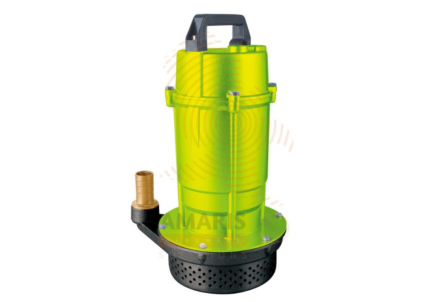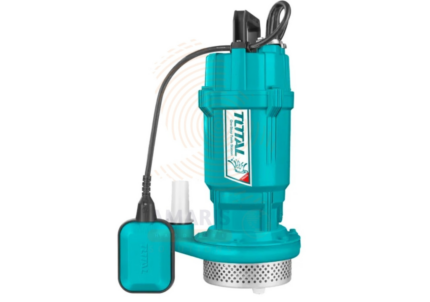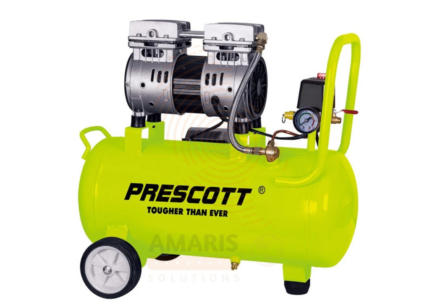
Disc Harrow
$1,357.69 Original price was: $1,357.69.$1,289.80Current price is: $1,289.80.

Wood Chisel Set
$18.85 Original price was: $18.85.$17.91Current price is: $17.91.
Diesel Water Pump
$441.50 Original price was: $441.50.$419.43Current price is: $419.43.
WhatsApp Order
A diesel water pump is a powerful pumping device powered by a diesel engine, widely used in agricultural, industrial, and construction sectors. It efficiently transfers large volumes of water in locations without reliable electricity. Known for its durability, portability, and fuel independence, it’s essential for irrigation, dewatering, firefighting, and water supply tasks in remote or off-grid sites.
Description
Table of Contents
ToggleDiesel Water Pump
Uses
-
Agricultural Irrigation
-
Pumps water from rivers, wells, or reservoirs to irrigate crops.
-
Ensures consistent water supply for large-scale farming.
-
-
Dewatering and Flood Control
-
Removes excess water from construction sites or flooded areas.
-
Prevents waterlogging and maintains safe work environments.
-
-
Firefighting
-
Supplies water in remote areas for firefighting operations.
-
Delivers high-pressure water streams to extinguish fires.
-
-
Construction and Industrial Water Supply
-
Provides water for concrete mixing, dust control, and industrial use.
-
Supports site operations needing large water volumes.
-
-
Emergency Water Transfer
-
Transfers water during disaster relief and power outages.
-
Ensures continuous water availability when electric pumps fail.
-
-
Aquaculture and Fish Farming
-
Maintains water circulation and quality in ponds and tanks.
-
Helps manage aquatic environments effectively.
-
SAFETY HANDLING PRECAUTIONS
Safety Precautions
-
Wear Protective Gear
-
Use safety goggles to shield eyes from splashes and debris.
-
Wear gloves and steel-toed boots to protect hands and feet.
-
Use hearing protection due to diesel engine noise.
-
-
Inspect Equipment Before Use
-
Check pump and engine for leaks, cracks, or loose components.
-
Verify fuel levels and inspect fuel lines for damage.
-
-
Safe Operation Practices
-
Operate pump on level, stable ground to prevent tipping.
-
Avoid running the pump dry to protect internal parts.
-
Ensure proper ventilation to avoid exhaust buildup.
-
-
Fuel Handling
-
Refuel only when engine is off and cooled.
-
Store diesel fuel safely, away from flames or sparks.
-
-
Handling and Transport
-
Use proper lifting techniques or equipment to move pump safely.
-
Secure pump during transport to avoid damage or leaks.
-
-
Emergency Preparedness
-
Know emergency engine shut-off procedures.
-
Keep a fire extinguisher nearby during operation.
-
-
Maintenance and Training
-
Follow manufacturer’s maintenance schedule closely.
-
Only trained personnel should operate the pump.
-
Related products
Clean Water Submersible Pump
The Clean Water Submersible Pump is designed for efficient water transfer in residential, commercial, and light industrial applications. Engineered to handle clean, debris-free water, this submersible pump ensures reliable performance, high flow rates, and long-lasting durability. Its compact design allows for easy installation in wells, tanks, and sumps, while the corrosion-resistant materials provide enhanced longevity. Ideal for irrigation, water supply, and drainage tasks, this pump combines efficiency with quiet operation, making it a dependable solution for your water handling needs.
Hand Pump
A hand pump is a manually operated device designed to draw or move fluids, typically liquids, from one place to another by using human force. It usually consists of a handle or lever that is manually operated to create suction or pressure, enabling the pumping action to transfer the fluid through a system of valves and pipes. Hand pumps are commonly used for various applications, such as extracting water from wells, transferring liquids between containers, or dispensing fluids in a controlled manner.
High Pressure Hose
A High Pressure Hose is a flexible and reinforced conduit designed to transport fluids, such as water, oil, or gas, under elevated pressure levels. Typically constructed with durable materials, such as synthetic rubber or thermoplastic compounds, high-pressure hoses are engineered to withstand and contain the force exerted by the fluid they convey. These hoses are commonly used in various industrial, automotive, and hydraulic applications where the need for efficient and secure fluid transfer at elevated pressures is paramount.
Pipe Cutter
A pipe cutter is a specialized tool designed for cutting pipes cleanly and accurately. Typically used in plumbing and other pipe-related applications, a pipe cutter consists of a cutting wheel or blade that is rotated around the pipe's circumference, gradually creating a groove. The tool is then tightened or adjusted, and the cutting wheel is rotated again, gradually deepening the groove until the pipe is cleanly severed. Pipe cutters come in various designs, including manual, ratcheting, and powered versions, providing versatility for different pipe materials and sizes.
Sewage submersible pump
A sewage submersible pump is a specialized type of pump designed for the efficient and reliable transfer of wastewater, sewage, or other contaminated fluids from one location to another. Unlike traditional pumps that are installed above ground, sewage submersible pumps are designed to be submerged in the fluid they are pumping. This submersible design allows the pump to operate efficiently in challenging environments, such as sewage systems, septic tanks, or other applications where the fluid may contain solids or debris.
These pumps are typically sealed to prevent water or sewage from entering the motor and other internal components. They often feature robust construction and materials to withstand the corrosive and abrasive nature of sewage. Sewage submersible pumps play a crucial role in wastewater management, helping to transport sewage from homes, businesses, and industrial facilities to treatment plants or disposal sites.
Silent Air Compressor
A silent air compressor is a device that generates compressed air with minimal noise emission during operation. Unlike traditional air compressors that can produce significant noise levels, silent air compressors are designed with sound reduction features to create a quieter working environment. These compressors are often employed in settings where low noise levels are crucial, such as in workshops, laboratories, or residential areas, allowing for more comfortable and less disruptive use.
Teflon Thread Sealing Tape
A Teflon thread sealing tape, also known as plumber's tape or PTFE tape (polytetrafluoroethylene tape), is a thin, white, non-sticky tape used to seal threaded pipe joints. It is commonly employed in plumbing and pipefitting applications to create a tight and leak-free seal between threaded connections, such as those found in pipes, fittings, and valves. The tape is wrapped around the threads of the male pipe before it is screwed into the female fitting. Teflon tape provides lubrication for easier assembly while forming a seal that helps prevent leaks and enhances the integrity of the connection. The non-stick properties of Teflon make it resistant to sticking or binding when the joint is later disassembled.
Tubing Cutter and Flaring Tool Set
This Tubing Cutter and Flaring Tool Set is an essential kit for plumbing, HVAC, and automotive applications, designed to provide precise and clean cuts along with professional-quality flares on tubing. The set includes a durable tubing cutter that easily slices through copper, aluminum, and soft steel pipes with minimal effort and a flaring tool that creates accurate, leak-proof flares to ensure tight fittings. Compact and easy to use, this kit is ideal for both professionals and DIY enthusiasts looking for reliable performance and lasting durability. Its ergonomic design and sturdy construction make tubing preparation efficient, helping you achieve secure connections every time.


 Acrylic Sealants
Acrylic Sealants Construction Adhesives
Construction Adhesives Double-Sided Tape
Double-Sided Tape Duct Tape
Duct Tape Electrical Tape
Electrical Tape Epoxy & Resins
Epoxy & Resins Masking Tape
Masking Tape
 Automotive Wrenches & Socket Sets
Automotive Wrenches & Socket Sets Battery Chargers & Jump Starters
Battery Chargers & Jump Starters Car Jacks & Stands
Car Jacks & Stands Car Wash & Detailing Products
Car Wash & Detailing Products Diagnostic Tools
Diagnostic Tools Tire Inflators
Tire Inflators Vehicle Lighting
Vehicle Lighting Oil & Lubricants
Oil & Lubricants
 Adhesives & Sealants
Adhesives & Sealants Bricks & Blocks
Bricks & Blocks Cement & Concrete
Cement & Concrete Drywall & Plaster
Drywall & Plaster Flooring (Tiles, Wood, Laminate)
Flooring (Tiles, Wood, Laminate) Lumber & Plywood
Lumber & Plywood Paints, Primers & Coatings
Paints, Primers & Coatings Insulation Materials
Insulation Materials Roofing Materials
Roofing Materials
 Circuit Breakers
Circuit Breakers Electrical Cables & Wires
Electrical Cables & Wires Switches & Sockets
Switches & Sockets Fuses & Relays
Fuses & Relays Connectors & Terminals
Connectors & Terminals Electrical Boxes & Panels
Electrical Boxes & Panels Conduit & Fittings
Conduit & Fittings Lighting Fixtures & Bulbs
Lighting Fixtures & Bulbs Extension Cords & Power Strips
Extension Cords & Power Strips
 Anchors
Anchors Bolts
Bolts Clips & Clamps
Clips & Clamps Screws
Screws Nuts
Nuts Washers
Washers Rivets
Rivets Nails
Nails Threaded Rods
Threaded Rods
 Hammers
Hammers Measuring Tools (Tapes, Levels, Calipers)
Measuring Tools (Tapes, Levels, Calipers) Screwdrivers
Screwdrivers Pliers & Cutters
Pliers & Cutters Saws & Blades
Saws & Blades Chisels & Punches
Chisels & Punches Allen Keys & Hex Keys
Allen Keys & Hex Keys Ratchets & Socket Sets
Ratchets & Socket Sets Wrenches & Spanners
Wrenches & Spanners
 Power Tool Accessories (Blades, Bits, Discs)
Power Tool Accessories (Blades, Bits, Discs) Rotary Tools
Rotary Tools Saws (Circular, Jigsaw, Reciprocating)
Saws (Circular, Jigsaw, Reciprocating) Drills & Drivers
Drills & Drivers Grinders & Sanders
Grinders & Sanders Heat Guns
Heat Guns Nail Guns
Nail Guns Impact Wrenches
Impact Wrenches Batteries & Chargers
Batteries & Chargers
 Pipes & Fittings (PVC, Copper, PEX)
Pipes & Fittings (PVC, Copper, PEX) Plumbing Tools
Plumbing Tools Pumps & Motors
Pumps & Motors Sealants & Adhesives for Plumbing
Sealants & Adhesives for Plumbing Valves & Taps
Valves & Taps Water Heaters
Water Heaters Drainage Systems
Drainage Systems Faucets & Fixtures
Faucets & Fixtures Hoses & Tubing
Hoses & Tubing
 Hinges & Latches
Hinges & Latches Hooks & Brackets
Hooks & Brackets Window Hardware
Window Hardware Chains & Cables
Chains & Cables Casters & Wheels
Casters & Wheels Shelving & Storage Systems
Shelving & Storage Systems Door Handles & Locks
Door Handles & Locks Drawer Slides & Cabinet Hardware
Drawer Slides & Cabinet Hardware
 Personal Protective Equipment (PPE)
Personal Protective Equipment (PPE) Respirators & Masks
Respirators & Masks Safety Glasses
Safety Glasses Safes
Safes Security Cameras
Security Cameras Gloves
Gloves Helmets
Helmets Ear Protection
Ear Protection Fire Safety Equipment
Fire Safety Equipment Locks & Padlocks
Locks & Padlocks Motion Sensors & Alarms
Motion Sensors & Alarms
 Garden Fencing
Garden Fencing Garden Furniture Hardware
Garden Furniture Hardware Lawn Mowers
Lawn Mowers Trimmers & Edgers
Trimmers & Edgers Shovels & Spades
Shovels & Spades Rakes & Hoes
Rakes & Hoes Pruning Shears & Loppers
Pruning Shears & Loppers Watering Systems (Hoses, Sprinklers, Nozzles)
Watering Systems (Hoses, Sprinklers, Nozzles)
 Interior Paints
Interior Paints Paint Brushes & Rollers
Paint Brushes & Rollers Paint Strippers & Thinners
Paint Strippers & Thinners Paint Trays & Accessories
Paint Trays & Accessories Exterior Paints
Exterior Paints Spray Paints
Spray Paints Primers & Undercoats
Primers & Undercoats Varnishes & Stains
Varnishes & Stains
 Gaskets & Seals
Gaskets & Seals Hydraulic Fittings
Hydraulic Fittings Industrial Fasteners
Industrial Fasteners Industrial Hoses
Industrial Hoses Lubricants & Greases
Lubricants & Greases Metal Sheets & Bars
Metal Sheets & Bars Bearings & Bushings
Bearings & Bushings Belts & Pulleys
Belts & Pulleys
 HVAC Filters
HVAC Filters Insulation for HVAC
Insulation for HVAC Air Conditioners
Air Conditioners Refrigerants
Refrigerants Ventilation Ducts & Fittings
Ventilation Ducts & Fittings Thermostats & Controllers
Thermostats & Controllers Fans & Blowers
Fans & Blowers
 Pegboards & Hooks
Pegboards & Hooks Shelving Units
Shelving Units Storage Bins & Containers
Storage Bins & Containers Toolboxes & Tool Chests
Toolboxes & Tool Chests Workbenches
Workbenches Drawer Organizers
Drawer Organizers Labeling Supplies
Labeling Supplies
 Welding Accessories (Clamps, Brushes)
Welding Accessories (Clamps, Brushes) Welding Electrodes & Rods
Welding Electrodes & Rods Welding Helmets & Gloves
Welding Helmets & Gloves Welding Machines
Welding Machines Soldering Irons & Stations
Soldering Irons & Stations Flux & Solder Wire
Flux & Solder Wire
 Generator Accessories
Generator Accessories Inverters
Inverters Portable Generators
Portable Generators Power Inverters
Power Inverters Transfer Switches
Transfer Switches Diesel & Gasoline Generators
Diesel & Gasoline Generators
 Transport Equipment: Carts, Dollies, and Hand Trucks
Transport Equipment: Carts, Dollies, and Hand Trucks Storage Solutions: Pallets, Racks, and Containers
Storage Solutions: Pallets, Racks, and Containers Lifting Equipment: Hoists, Cranes, and Jacks
Lifting Equipment: Hoists, Cranes, and Jacks Conveyors & Accessories: Belts & Rollers
Conveyors & Accessories: Belts & Rollers
 Office Chairs
Office Chairs











